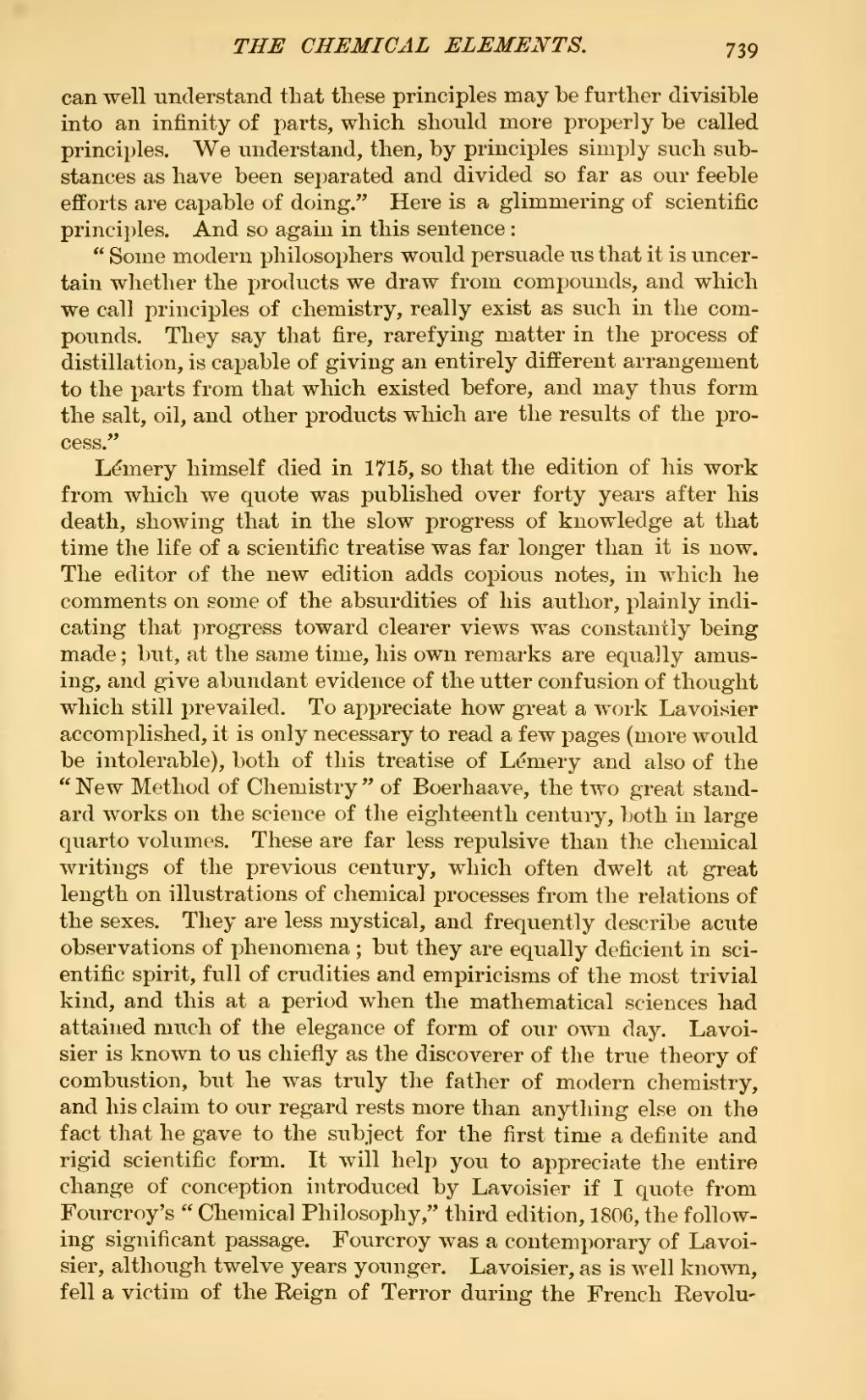can well understand that these principles may be further divisible into an infinity of parts, which should more properly be called principles. We understand, then, by principles simply such substances as have been separated and divided so far as our feeble efforts are capable of doing." Here is a glimmering of scientific principles. And so again in this sentence:
"Some modern philosophers would persuade us that it is uncertain whether the products we draw from compounds, and which we call principles of chemistry, really exist as such in the compounds. They say that fire, rarefying matter in the process of distillation, is capable of giving an entirely different arrangement to the parts from that which existed before, and may thus form the salt, oil, and other products which are the results of the process."
Lémery himself died in 1715, so that the edition of his work from which we quote was published over forty years after his death, showing that in the slow progress of knowledge at that time the life of a scientific treatise was far longer than it is now. The editor of the new edition adds copious notes, in which he comments on some of the absurdities of his author, plainly indicating that progress toward clearer views was constantly being made; but, at the same time, his own remarks are equally amusing, and give abundant evidence of the utter confusion of thought which still prevailed. To appreciate how great a work Lavoisier accomplished, it is only necessary to read a few pages (more would be intolerable), both of this treatise of Lémery and also of the "New Method of Chemistry" of Boerhaave, the two great standard works on the science of the eighteenth century, both in large quarto volumes. These are far less repulsive than the chemical writings of the previous century, which often dwelt at great length on illustrations of chemical processes from the relations of the sexes. They are less mystical, and frequently describe acute observations of phenomena; but they are equally deficient in scientific spirit, full of crudities and empiricisms of the most trivial kind, and this at a period when the mathematical sciences had attained much of the elegance of form of our own day. Lavoisier is known to us chiefly as the discoverer of the true theory of combustion, but he was truly the father of modern chemistry, and his claim to our regard rests more than anything else on the fact that he gave to the subject for the first time a definite and rigid scientific form. It will help you to appreciate the entire change of conception introduced by Lavoisier if I quote from Fourcroy's "Chemical Philosophy," third edition, 1806, the following significant passage. Fourcroy was a contemporary of Lavoisier, although twelve years younger. Lavoisier, as is well known, fell a victim of the Reign of Terror during the French Revolu-
